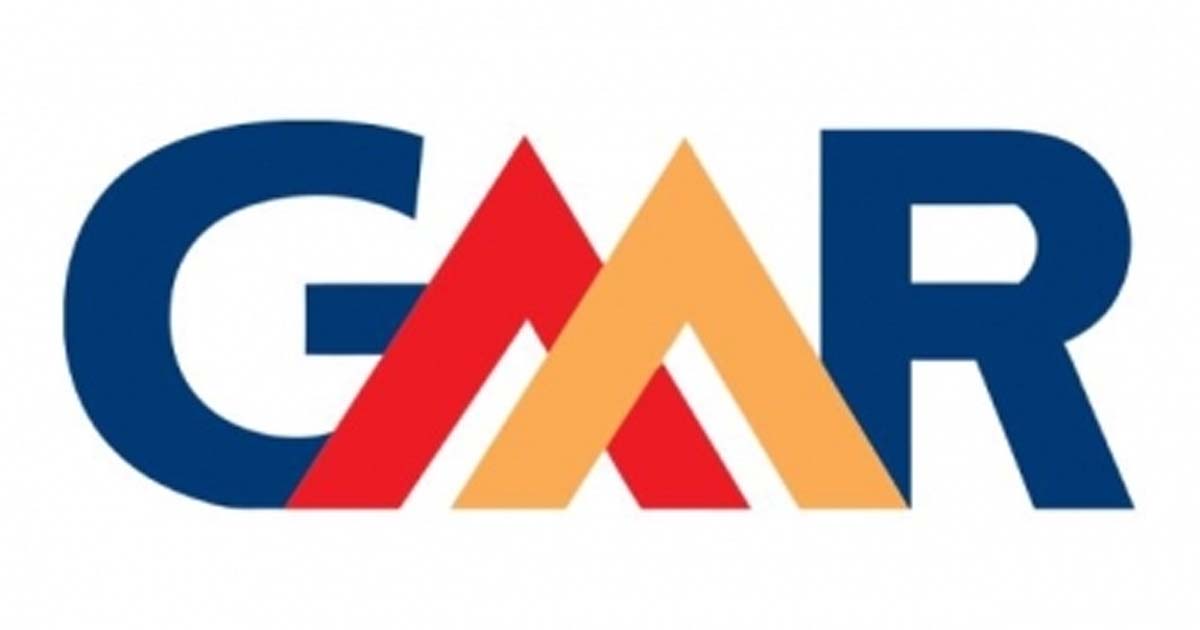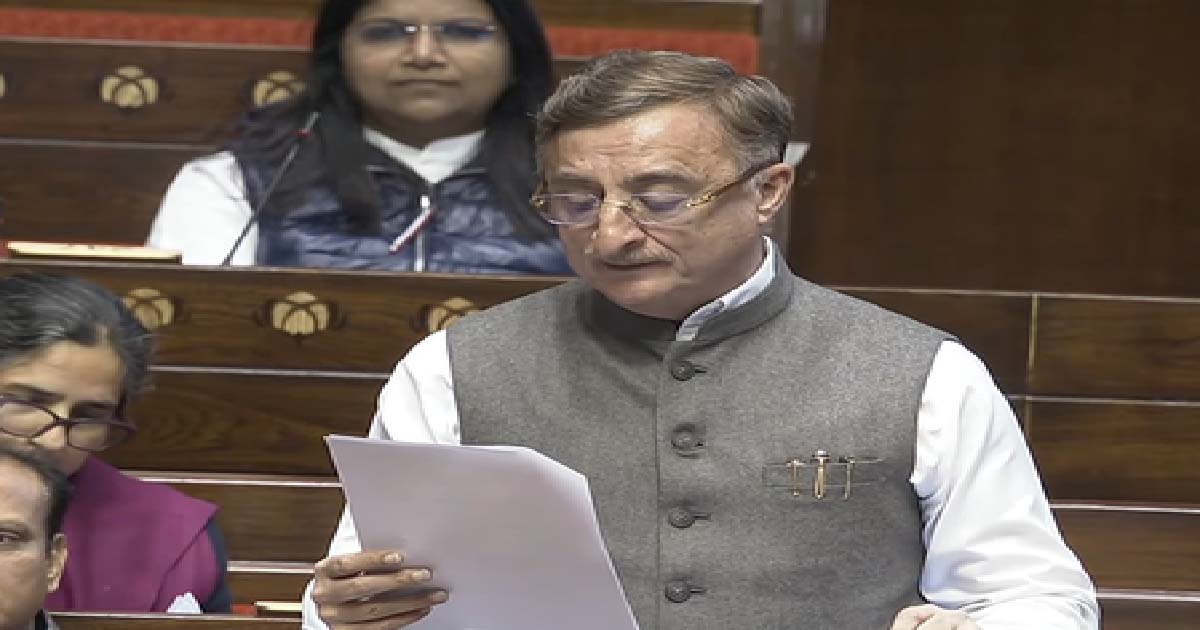Business
GMR Airports piles up Rs 253 crore loss in January-March quarter

New Delhi, May 23: GMR Airports on Friday reported an increase in its consolidated loss to Rs 253 crore for the January-March quarter of 2024-25, even as the company’s total income increased during this period.
The company had made a loss of Rs 168 crore in the same quarter of the previous year.
GMR Airports said in a regulatory filing that its total income rose to Rs 2,977 crore in the fourth quarter of 2024-25 from Rs 2,570 crore in the year-ago period.
During the fourth quarter, EBITDA stood at Rs 1,122.74 crore in the March quarter 2025, registering a growth of 19.39 per cent YoY.
Total expenses shot up 13.73 per cent year-on-year to Rs 1,854.02 crore in the quarter ended March 31, 2025. Cost of materials consumed stood at Rs 42.80 crore, employee benefits expenses were at Rs 393.52 crore, and other expenses were at Rs 586.63 crore in Q4 FY25
For the full financial year 2024-25, the company’s loss worked out to Rs 817 crore compared to the loss of Rs 829 crore in the same period a year ago.
GMR Airports Ltd (GAL) operates the Delhi, Hyderabad, and Mopa (Goa) airports. Besides, it is developing the Bhogapuram Airport in Andhra Pradesh.
“Total passenger traffic at GAL-owned airports increased by 9 per cent year-on-year, 31.5 million in Q4 FY25, and 9 per cent year-on-year to 120.5 million in FY25,” the regulatory filing said.
GAL is also operating Medan Airport in Indonesia and developing Crete Airport in Greece as part of its overseas ventures.
GAL said the tariff order issued by regulator AERA for the fourth control period ending March 31, 2029, would significantly improve the aero revenue of its operations at the Delhi airport, which in turn would lead to an increase in the overall profitability and cash flow generation at DIAL and the company.
The tariff order came into effect on April 16, 2025.
“The financials of DIAL and GAL would have been better, had this order been issued during FY25,” the filing said.
The GAL share prices fell over 2 per cent to Rs 87.08 apiece in late afternoon trade on BSE.
Business
Chaos continues at Hyderabad Airport as IndiGo cancels 92 flights

Hyderabad, Dec 5: Utter chaos continued at Hyderabad’s Rajiv Gandhi International Airport (RGIA) on Friday as IndiGo Airlines cancelled 92 flights for the day.
For the fourth consecutive day, the airline cancelled flights, causing severe inconvenience to thousands of passengers.
A total of 92 IndiGo flights have been cancelled for the day, an airport spokesman said. These include 43 arrivals and 49 departures.
This is the highest number of flights to be cancelled in four days. The airline had cancelled 74 flights on Thursday.
A total of 220 flights have been cancelled since December 2.
The cancellations for the fourth consecutive day triggered a protest by passengers at the terminal building. Angry passengers had heated arguments with the IndiGo staff.
A group of passengers was seen surrounding an official of the airline, seeking replies to their queries. Passengers complained that flights were cancelled after check-in.
The cancellations on key domestic routes severely disrupted the travel plans of the passengers for the fourth consecutive day.
A large number of passengers remained stranded at the airport. Long queues were seen outside and inside the terminal. Tempers were running high in the terminal building as angry passengers confronted the airline staff. Some were asking why the airline scheduled the flights when the staff was not available. Frustrated passengers had a heated argument with the staff and even raised slogans of ‘shame’.
Departures and arrivals on key domestic routes like Delhi, Bengaluru, Chennai, Kolkata, Visakhapatnam, Goa, Madurai and Bhubaneswar severely inconvenienced passengers.
A large number of Ayappa devotees were also stranded due to the cancellation of flights to Kochi. As a mark of protest, the devotees were seen chanting slogans of “Swamiye Saranam Ayyappa”.
Andhra Pradesh Minister Kolusu Partha Sarathy, who was at the airport to board a flight to Vijayawada, intervened to help Ayyappa devotees. He spoke to Civil Aviation Minister K. Ram Mohan Naidu over the phone to arrange a special flight.
The minister, who missed his flight to Vijayawada, later left by road.
Meanwhile, eight IndiGo flights were cancelled at Visakhapatnam airport. With flights to key destinations like Hyderabad, Chennai, Bengaluru and Ahmedabad getting cancelled, passengers lodged their protest with the airline staff.
IndiGo attributed the disruption to ‘a multitude of unforeseen operational challenges’ including minor technology glitches, winter-season driven schedule changes, adverse weather, increased congestion in the aviation system and the implementation of updated Flight Duty Time Limitations for crew.
RGIA authorities have advised passengers to check the latest status of their flights with their respective airlines before heading to the airport.
Business
Sensex , Nifty open lower as investors await RBI’s MPC decision

Mumbai, Dec 5: Indian equity markets opened slightly lower on Friday, as investors awaited the Reserve Bank of India’s key interest rate decision.
The Monetary Policy Committee (MPC) will announce the repo rate at 10 AM after concluding its three-day meeting, keeping traders cautious at the start of the session.
At the opening bell, the Sensex was at 85,187, down 79 points or 0.09 per cent. The Nifty also saw a mild decline, slipping 12 points or 0.05 per cent to 26,021.
Several heavyweight stocks dragged the market, with Reliance Industries, Trent, Tata Steel, Bharti Airtel, Tata Motors Passenger Vehicles, Sun Pharma and Titan trading in the red.
On the other hand, companies like Eternal, BEL, Maruti Suzuki, Bajaj Finance, Kotak Mahindra Bank, Infosys and Ultratech Cement were among the top gainers, offering some support to the benchmarks.
In the broader market, sentiment remained soft as the Nifty MidCap index edged down 0.07 per cent, while the Nifty SmallCap index fell 0.30 per cent.
Sector-wise, pharma and metal stocks were under pressure, with both indices declining 0.3 per cent.
However, real estate stocks bucked the trend, helping the Nifty Realty index gain 0.28 per cent.
Analysts said that the markets traded cautiously ahead of the RBI’s policy outcome, with investors keeping a close watch on the central bank’s commentary and the interest rate outlook.
Rupee’s sharp recovery yesterday to 89.97 from the low of 90.42 is signalling some sort of stability in the currency market.
“RBI governor’s views on the rupee today will significantly influence the near-term direction of the currency,” analysts said.
Business
Cong flags sharp rupee decline in Rajya Sabha, warns of widespread economic strain

New Delhi, Dec 4: During Zero Hour in the Rajya Sabha on Thursday, Congress MP from Madhya Pradesh Vivek Tankha voiced deep concern over what he described as the “freefall of the Indian rupee” and the widening economic distress affecting ordinary citizens across the country.
Calling the issue “extremely topical and urgent”, Tankha said the currency’s sharp decline was inflicting widespread financial strain on households, businesses and key sectors of the economy.
Tankha noted that the rupee had crashed past Rs 90 per US dollar — touching between 90.14 and 90.19 — marking the weakest level in India’s history. Over the past five years, he said, the rupee has lost between 20 per cent and 27 per cent of its value, effectively reducing the purchasing power of people’s income by nearly one fourth. In global terms, the rupee has fallen 5 per cent this year alone, its steepest drop since 2022, making it one of Asia’s worst-performing currencies in 2025.
He further highlighted that India recently recorded a monthly trade deficit exceeding USD 40 billion, underscoring how sharply imports outweigh exports. At the same time, foreign investors have withdrawn more than USD 17 billion from Indian markets this year — the largest outflow in several years — drying up capital and weakening investor sentiment.
“FDI flows are stagnant, external borrowings have slowed, and the world is becoming increasingly wary of India’s external stability,” Tankha warned.
Emphasising the direct impact on citizens, he said that every bout of rupee depreciation makes imports costlier, and India relies heavily on imported fuel, cooking gas, electronic machinery and medicines. A 5 per cent fall in the rupee, he explained, pushes inflation up by 30-35 basis points.
“Every household ends up paying more. Food prices rise, transport costs increase, and a chain reaction follows that hits the poor the hardest,” he said.
The middle class, he added, is also feeling the squeeze as the prices of smartphones, laptops, medical equipment, school supplies, clothing and household appliances rise due to India’s dependence on imported components.
“For the common person, a falling rupee feels like a salary cut without the employer informing you. Your money buys less every day,” he remarked.
Tankha also drew attention to the pressure on Micro, Small and Medium Enterprises (MSMEs), many of which rely on imported raw materials. These businesses are facing a 20-30 per cent rise in input costs, shrinking already thin margins.
Machinery imports have become more expensive, slowing expansion and putting jobs at risk. Exporters, he said, are not gaining from the weaker rupee because major export sectors — such as textiles, chemicals and engineering goods — depend heavily on imported intermediaries.
“Small manufacturers are caught in a double blow: higher costs and weaker demand,” he said.
Companies with foreign currency loans are also struggling, with repayment costs rising by 15-20 per cent due to the rupee’s depreciation, weakening corporate balance sheets and threatening financial stability.
A falling rupee, Tankha added, discourages overseas investors, creating a “vicious cycle” where declining confidence further accelerates currency pressure. “As the rupee falls, investors pull out, and markets shift,” he cautioned.
Tankha urged the government to recognise the seriousness of the situation and take urgent corrective measures to stabilise the currency and safeguard vulnerable sectors of the economy.
-

 Crime3 years ago
Crime3 years agoClass 10 student jumps to death in Jaipur
-

 Maharashtra1 year ago
Maharashtra1 year agoMumbai Local Train Update: Central Railway’s New Timetable Comes Into Effect; Check Full List Of Revised Timings & Stations
-

 Maharashtra1 year ago
Maharashtra1 year agoMumbai To Go Toll-Free Tonight! Maharashtra Govt Announces Complete Toll Waiver For Light Motor Vehicles At All 5 Entry Points Of City
-

 Maharashtra1 year ago
Maharashtra1 year agoFalse photo of Imtiaz Jaleel’s rally, exposing the fooling conspiracy
-

 National News1 year ago
National News1 year agoMinistry of Railways rolls out Special Drive 4.0 with focus on digitisation, cleanliness, inclusiveness and grievance redressal
-

 Maharashtra1 year ago
Maharashtra1 year agoMaharashtra Elections 2024: Mumbai Metro & BEST Services Extended Till Midnight On Voting Day
-

 National News1 year ago
National News1 year agoJ&K: 4 Jawans Killed, 28 Injured After Bus Carrying BSF Personnel For Poll Duty Falls Into Gorge In Budgam; Terrifying Visuals Surface
-

 Crime1 year ago
Crime1 year agoBaba Siddique Murder: Mumbai Police Unable To Get Lawrence Bishnoi Custody Due To Home Ministry Order, Says Report












